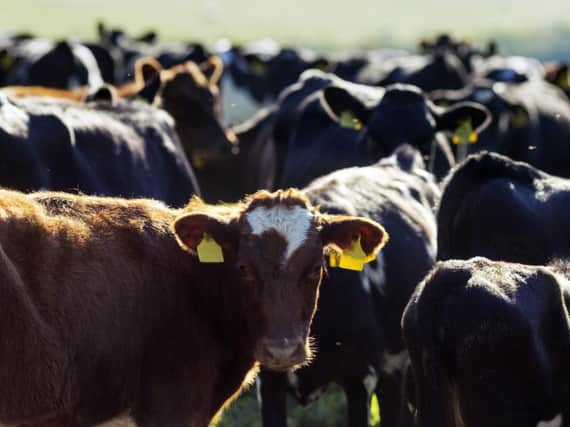Ben Barnett: Why public goods clarity can be decisive intervention in British beef debate
This article contains affiliate links. We may earn a small commission on items purchased through this article, but that does not affect our editorial judgement.


Undue attention is particularly given to an anti-meat narrative that is at odds with the findings of a series of scientific reports, she said.
Advertisement
Hide AdAdvertisement
Hide AdTaking to Twitter, Mrs Batters spoke up for people she described as feeling “terrorised” by a continual bashing of their livelihoods – livelihoods that produce the nation’s food to some of the highest animal welfare and sustainability standards in the world.
The union leader was challenged by one critic over the lack of a published plan to deliver on a target for UK farming to become net zero by 2040, six months after the ambition was announced, but she told The Yorkshire Post work was ongoing behind the scenes and she was confident that, with the right incentives from government as a new post-Brexit agricultural policy is drawn up, that lofty goal can be achieved.
Given the horrendous emotional drain on farmers of attacks on their vocation, surely the situation adds even greater weight for urgency from government to define the ‘‘public goods’’ it plans to reward farmers for – a policy shift which could be phased in as soon as 2021 under the current Conservative government.
Advertisement
Hide AdAdvertisement
Hide AdBy finally publishing a list of ‘‘public goods’’ that will be backed with funding under a new farming support model, and including measures that recognise and reward the sustainable standards involved in producing grass-based British beef, those environmental standards so quickly disregarded by people who ignore differences in how red meat is produced here and in other countries, would be properly recognised.
It could go some way to making those standards better funded too, making beef production more financially viable and allowing farmers to make further investments as they strive for net zero.